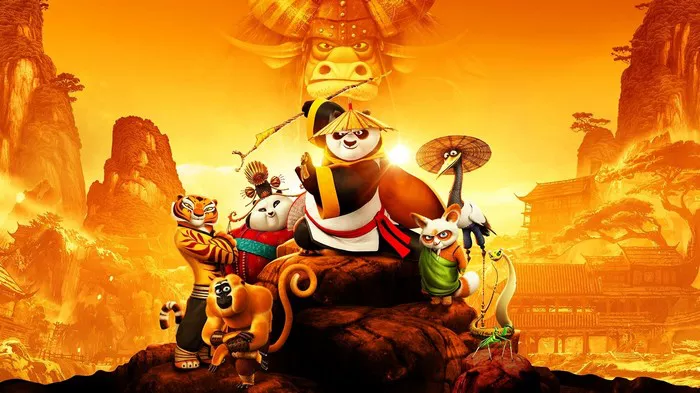“Kung Fu Panda,” the beloved animated film franchise, has captivated audiences around the world with its endearing characters, captivating storytelling, and stunning animation. While the series has enjoyed widespread popularity globally, its significance holds a special place in the hearts of audiences in China, the birthplace of kung fu and the cultural heritage that inspired the films. In this article, we delve into the reasons why China cared so deeply about “Kung Fu Panda,” examining the cultural, historical, and artistic factors that contributed to its resonance with Chinese audiences.
The Cultural Roots of Kung Fu: A Brief Overview
Before we explore the specific reasons behind China’s fascination with “Kung Fu Panda,” it’s essential to understand the cultural significance of kung fu itself. Originating in China over a thousand years ago, kung fu is not merely a martial art but a holistic system of physical, mental, and spiritual training. Deeply rooted in Chinese philosophy, tradition, and mythology, kung fu embodies principles such as discipline, perseverance, and harmony with nature, making it a cornerstone of Chinese culture and identity.
From Hollywood to the Middle Kingdom: The Global Success of “Kung Fu Panda”
“Kung Fu Panda,” produced by DreamWorks Animation, debuted in 2008 to critical acclaim and commercial success, grossing over $630 million worldwide. The film tells the story of Po, a bumbling panda who dreams of becoming a kung fu master, and his journey to fulfill his destiny alongside the Furious Five, a group of skilled martial artists. While the film’s appeal transcends borders and cultures, its connection to China struck a chord with audiences in the Middle Kingdom for several reasons:
Representation and Identity: For many Chinese audiences, seeing a Hollywood film that celebrates their cultural heritage and traditions was a source of pride and validation. “Kung Fu Panda” offered a rare opportunity for Chinese audiences to see themselves reflected on the big screen, fostering a sense of cultural identity and belonging.
Respect for Tradition: Despite its comedic tone and anthropomorphic characters, “Kung Fu Panda” pays homage to the rich traditions of Chinese martial arts and philosophy. The film’s attention to detail and authenticity in depicting kung fu techniques, settings, and iconography resonated with Chinese audiences who appreciated the film’s reverence for their cultural heritage.
Spiritual Themes: At its core, “Kung Fu Panda” explores themes of self-discovery, personal growth, and the journey towards enlightenment—themes that are deeply rooted in Chinese spirituality and philosophy. The film’s portrayal of Po’s quest to unlock his inner potential and find inner peace struck a chord with audiences who connected with its universal messages of resilience and transformation.
Panda Diplomacy: Leveraging Soft Power for Cultural Exchange
In addition to its cultural significance, “Kung Fu Panda” played a unique role in China’s diplomatic efforts to promote cultural exchange and soft power on the global stage. Through initiatives such as “panda diplomacy,” China leveraged the popularity of the film and its iconic panda protagonist to foster goodwill and strengthen diplomatic ties with other countries. By loaning pandas to zoos around the world and partnering with international organizations to promote panda conservation, China used “Kung Fu Panda” as a tool for cultural diplomacy and international cooperation.
Economic Impact and Tourism Boost: Capitalizing on Panda Mania
The success of “Kung Fu Panda” also had tangible economic benefits for China, particularly in the realm of tourism and merchandise sales. Following the release of the film, tourism to panda reserves and cultural heritage sites in China surged, as visitors from around the world flocked to experience the country that inspired the beloved animated franchise. Additionally, the popularity of “Kung Fu Panda” merchandise—from toys and apparel to themed attractions—generated significant revenue for Chinese businesses and bolstered the country’s growing animation and entertainment industry.
Educational Value: Inspiring Interest in Chinese Culture and History
Beyond its entertainment value, “Kung Fu Panda” served as an educational tool for audiences both in China and abroad, sparking interest in Chinese culture, history, and philosophy. The film’s portrayal of kung fu as a discipline rooted in ancient traditions and wisdom prompted viewers to delve deeper into the history and philosophy of Chinese martial arts, fostering a greater appreciation for the country’s cultural heritage.
Conclusion: The Enduring Legacy of “Kung Fu Panda” in China
In conclusion, “Kung Fu Panda” holds a special place in the hearts of audiences in China, where its celebration of kung fu, pandas, and Chinese culture struck a chord with viewers of all ages. From its representation of cultural identity to its role in diplomatic and economic initiatives, the film’s impact extends far beyond the realm of entertainment, shaping perceptions of China and fostering a deeper appreciation for its rich cultural heritage. As the franchise continues to inspire and delight audiences around the world, its legacy in China remains an enduring testament to the power of storytelling to bridge cultures, promote understanding, and celebrate the shared values that unite us all.


